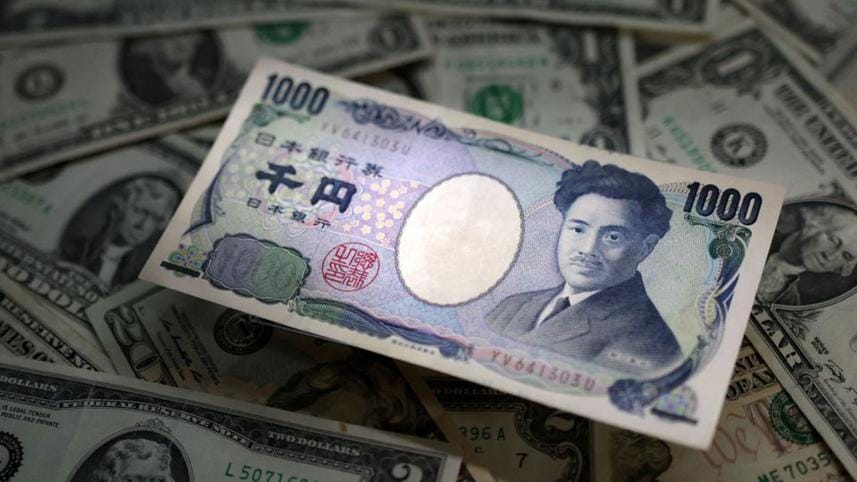Why has the Japanese yen been so weak?

Japan's yen hit a three-decade low on Monday before rebounding in a move currency traders suspected was official intervention.Support for the currency follows a years-long slide that even Japan's first interest rate hike since 2007 and broad optimism about the economy has failed to arrest.
In real terms, the yen has been at its weakest since at least the 1970s. It traded at 160.245 per dollar on April 29 before rising to 155.01 per over a few hours, seemingly without any news or information in the market.
A weaker yen is a boon for Japanese exporters' profits, and for tourists visiting Japan who find their currencies going further, but it squeezes households by increasing import costs.
Here are some of the reasons for the slide:
Rates
Interest rates and momentum are powerful forces in foreign exchange markets. Both are against the yen. The Bank of Japan left short-term Japanese interest rates between 0 and 0.1 percent in April and did not indicate sharp or sustained rises were coming up ahead.
That left the yen the lowest-rate, or yielding, G10 currency and investors are borrowing it cheaply and selling it to buy higher-yielding currencies, driving its price down.
These deals, known as a "carry trades" are particularly attractive when broader market volatility is relatively low, as it is right now, as the fundamental rate difference can drive the markets.Short-term US rates are at 5.25-5.5 percent and a US rate cut isn't expected until November or December.
The US-Japan government bond yield gap at the 10-year tenor is about 375 bps .
Momentum
Why is the yen falling? Because people are selling it. And why are people selling? Because it is falling. Such can be the self-fulfilling loop of the market mindset.
The yen has been steadily sliding for more than three years and has lost more than one-third of its value since the start of 2021 and few are game to stand in the way.
The trend discourages exporters from converting foreign proceeds into yen. It encourages Japanese financial institutions to invest abroad. And it has been a boon for speculators betting against the yen, who have not been shy.Speculators' short-yen positions hit their largest since 2007 in the week ended April 23.
Outlook
Japan's central bank made a historic shift out of negative interest rates in March. But the move was so well advertised, and has not put future sharp hikes on the table, leaving investors comfortable to add to short yen positions.The BOJ's decision to leave policy unchanged at its April meeting and to offer no fresh hints of hikes seemed to unleash a new wave of yen selling that drove the currency, briefly, weaker than 160 per dollar for the first time since 1990.
The rates picture is also keeping big Japanese investors' cash abroad, where it can earn better returns.Japan Post Bank and Japan Post Insurance, among the largest financial firms, told Reuters their portfolios won't be radically changing in response to the BOJ's March shift.
Response
The yen rose sharply over a few hours in the Asia daytime on April 29, leading traders to suspect that after weeks of threatening to intervene, Japan had stepped in to support its currency.Japan's top currency diplomat Masato Kanda declined to comment when asked if authorities in Tokyo had intervened. In any case, the risk of intervention at these levels is high enough that few wanted to stand in the way of the yen's rebound.
Real Terms
A real effective exchange rate index value of 70.25 for the yen in February is the lowest since the Bank of International Settlements' records began in 1994 and lower than any of the Bank of Japan's retrospective projections, which date to 1970.
That means tourist dollars go further than they have for generations and that has the tourism industry booming.
Japan's current account has been in surplus for 13 months with help from tourism income and February's 2.79 million visitors was a record for the month.Domestic consumption, however, has been a weak spot in Japan's fragile economic recovery as households tend to be net importers and face higher prices due to a weak yen.
Beyond Japan, some analysts say the yen's weakness threatens to erode the competitive advantage of Chinese manufactures, and speculate it could be behind recent falls in the yuan - though authorities in China maintain a close grip on the currency.



 For all latest news, follow The Daily Star's Google News channel.
For all latest news, follow The Daily Star's Google News channel.
Comments